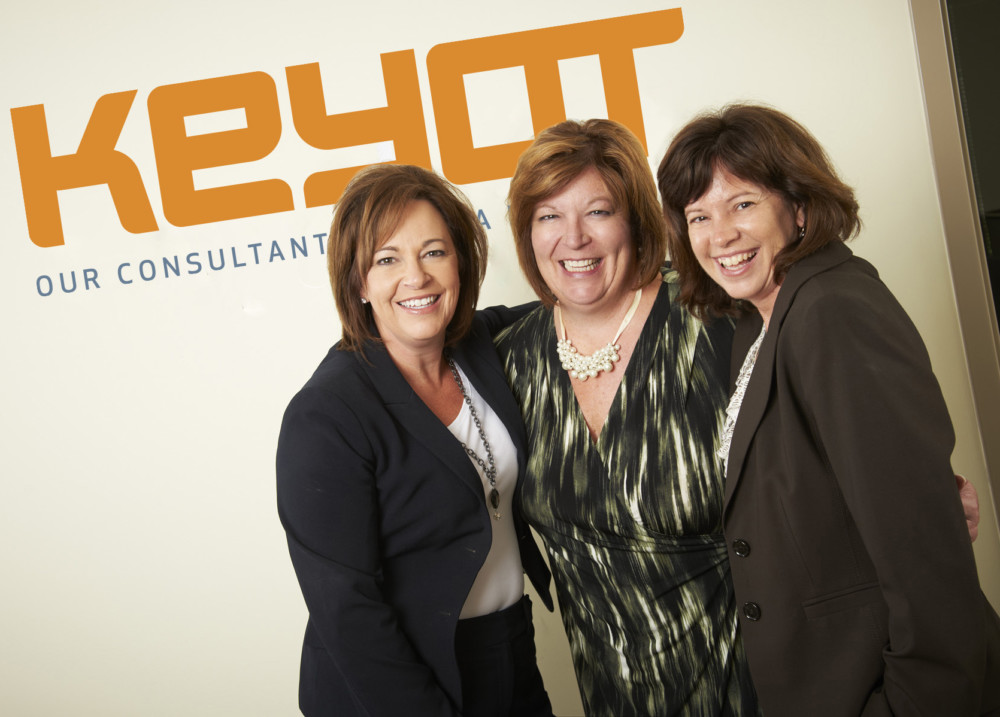By Neal St. Anthony
Star Tribune (Minneapolis)
WWR Article Summary (tl;dr) Sisters Laura Kelly and Anjie Cayot have hit the sweet spot with their IT consultancy firm which is focusing on the fastest-growing component of the tech world — female and minority workers.
Star Tribune (Minneapolis)
When Laura Kelly launched IT consultancy Keyot with sister Anjie Cayot out of Kelly’s basement a decade ago, she was burned out from travel and fed up making money for big-company employers.
The siblings accomplished their first objective in a hurry: establishing a growth company, which this year is projected to reach revenue of $25 million-plus from the work of nearly 200 IT consultants and staff.
They also, as female owners and farsighted entrepreneurs, have hit the sweet spot with the fastest-growing component of the tech world — female and minority workers whose ranks are growing at roughly double the pace of the overall IT-business services employment market in the Twin Cities area.
“I like to call Crew 212 our millennial launchpad,” said Kelly. “And we’ve made it really simple for clients,” particularly smaller ones who can’t afford $100-plus per hour Keyot IT professionals, much less the $200-plus-an-hour fees of national consultants.
“Our [Crew 212] analytical talent is $57 an hour and our software engineers are $70,” Kelly said. “And the client may want us to build a blended solution and give them that senior person and a couple of Crew 212 people.
Keyot takes rookie IT people, who have some requisite IT-and-analytical skills but lack traditional computer-science training, through a several-week boot camp. After that, they launch them through participating clients.
The client can hire them after a year, or the talent stays another year with the client, or another client, as a Keyot consultant.
“The client [if a hire is made] is paying our placement fee through that $57-an-hour rate,” Kelly said. “It’s baked in. That’s easier for most clients” than a five-figure fee at hire.
Keyot launched Crew 212 in 2010.
“When we started as women in IT,” recalls Cayot, “women were underrepresented in information technology. We’ve focused a lot by looking at other underrepresented populations. Every one of our clients is saying they want their workforce to mirror their client base.”
Skarlett Salazar, a recent applied economics graduate from the University of Minnesota, is one of those Crew 212 workers.
A Nicaraguan by birth who immigrated with her parents to the United States as a child, Salazar credits her father,
Noel, a factory worker, and her late mother as inspiration to get through college and make a career.
It took awhile and involved a lot of work.
“I had to do a paper for my entrepreneurship class at the university; I was a business minor, and the assignment was to interview a CEO and I found Laura Kelly,” Salazar recalled. “I am a nontraditional hire. I didn’t think of myself as an IT person.
“But I’m a math person and I like statistics. I wanted to work with data and that is really part of this field. My team builds data basis for our clients. We can convert to full time with a client when there’s a position or stay as a consultant. The work is interesting. I basically get paid to solve problems.”
A majority of Crew 212 consultants are women.
The job forecasters estimate that there will be up to 200,000 IT-related job openings in Minnesota over the next decade, thanks to economic and technology growth, as well as baby boomer retirements of mostly white men.
“We started 212 as junior-project delivery service,” Cayot said. “It’s broadened to data analytics, IT security, software engineering and business process automation. We look at how we can transform people with raw talent and skills into a lucrative IT future. I don’t think we have a choice.
“IT isn’t so much a vertical anymore, its own line of business. Every functional area has a component of technology that’s enabled through technology or delivers a customer service through tech or delivers something within the company. It’s a huge opportunity for the next generation. You can have a career in technology without being a software developer or software architect … requiring a four-year computer science degree.
Kelly said Keyot doesn’t “focus on placing females over males in our opportunities.
We look for parity. We look to find opportunities for women who didn’t come up the traditional path and we look for women who have potential to go to the next level. We feel the contribution is to see parity.”
Keyot specializes in placing teams of people with regulated financial institutions, such as major and community banks.
“The clients choose the people they want to hire,” Cayot said.














































































































































































































































































































































































